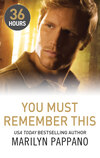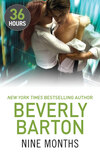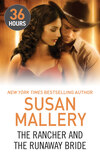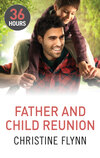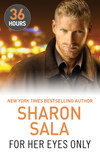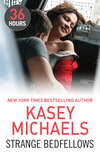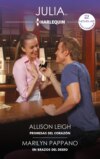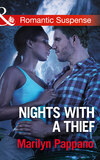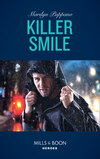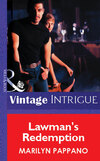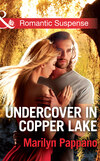Kitabı oku: «You Must Remember This», sayfa 2
“I’ve been thinking about this all afternoon, and I’m not really sure I can help you.”
He didn’t want to hear that, pretended he didn’t hear it as he circled the room. There were blinds on the windows, no curtains and nothing on the walls but a corkboard directly behind her. From across the room, he couldn’t make out any of the notes thumbtacked to the board. When he pulled out the chair beside her, he still couldn’t read them. Her writing was atrocious.
“Exactly what was Terry doing?”
“We went through old newspapers and school yearbooks, checked town records, looking for something I might remember.”
“You think you’re from here.”
“I know I’ve been here. From the start, I’ve had this feeling…” He wasn’t one to talk much about feelings, or if he did, he disguised them with other words. Instincts. Intuition. Intuition told him he’d been in Grand Springs long enough to gain a familiarity with the place. Too often he knew what was around a corner he’d never turned. He’d known in September about the eighty-foot-tall pine that would be decorated for Christmas in December. There were places—the high school gymnasium, a restaurant downtown, a clothing store—where he knew he’d been at some time in the forgotten past.
“But if you had lived here or spent any length of time here, don’t you think someone would recognize you?”
He scowled at the logic of her argument. “Maybe it was a long time ago. Maybe I’ve changed. Maybe I’m not that noticeable.”
Juliet had to bite her tongue to stop from snorting scornfully at that last comment. Not noticeable? In what galaxy? She’d seen his effect on the females in the library, from giggly teenagers to white-haired grandmothers. There was no way he could have spent any time here and the women of Grand Springs not notice him. “When you appeared in Grand Springs, you didn’t remember anything?”
“I remembered who was president of the United States. I knew that I’ve always liked Italian food. I knew I spoke fluent Spanish. I remembered plenty of things. Just nothing important, like who I am or where I’m from.” He slumped in the chair, his feet stretched out so that they nearly touched hers. She swiveled her chair a few inches to the right.
“What happened the night of the accident?” She knew there’d been a wreck, that he’d suffered a head injury and now had amnesia, but the rumor mill was short on details, and details were desperately needed if she was going to help him.
“The first thing I remember is waking up with a hell of a headache. I guess I lost control of the car in the storm and hit the guardrail.”
The storm. That was how the town referred to that weekend last June. Rains had saturated the area, and the downpour that Friday evening had been more than the ground could bear. There had been massive mud slides, closing the highways and causing a blackout that lasted into Sunday.
“Besides banging your head, were you hurt?”
He shook his head. “I left the car and started walking. The town was completely dark, so when I saw lights, I headed for them. It was the hospital. They examined me, gave me a name—”
“After the soap opera hunk,” she said, and he scowled again. Which offended him more—the soap opera part or the hunk part?
“And called the police. They were busy with the blackout and the mayor’s murder, but eventually they got around to me. They took my fingerprints and sent them to the FBI and the state. They didn’t know who I was, either.”
“So we know you’re not a cop, you were never in the military, and you’re not a crook.”
“At least, not one who’s been caught.”
She ignored his mutterings and went on. “Before the accident, were you coming to Grand Springs or going away from it?”
“I don’t remember.”
“Which direction was your car facing when you regained consciousness?”
“I don’t remember. I’d hit my head. I was disoriented.”
“What happened to the car?”
He lifted his shoulders in a shrug. “Once things settled down and the roads were reopened, Stone Richardson took me out to find it. We couldn’t.”
“Why not?”
“I didn’t remember where I left it, but wherever that was, it was no longer there. We drove all the way to the interstate and found nothing.”
“So someone stole it.”
“Or it got swept away by the mud slides.”
“Is that possible?”
His look was dry, his voice even drier. “Have you ever seen a few tons of mud and rock come rushing down a mountainside?”
“I’m from Dallas. We don’t have mountainsides. We don’t even have many hillsides.”
“A mud slide can uproot trees, tear down guardrails and destroy chunks of roadway. It can move a building off its foundation and carry it away, breaking it into splinters along the way. It can destroy a town, kill anyone in its way, and, yes, it can wash away a car.”
“Didn’t anyone search for the car?” It seemed a simple enough task to her: find the places where the mud had rushed over the highway, follow it down the mountainside and find the car. If it wasn’t immediately visible, search any places where the mud was deep enough to cover it. Easy.
“When you moved here, you drove into town from the interstate, didn’t you? You saw the drop-offs in some places along the highway, didn’t you?”
She nodded. In a few places, the shoulder wasn’t more than a few feet wide, and nothing more than a steel guardrail separated a car on the highway from a two-thousand-foot fall. Other drops were less dramatic, but there were plenty where a search would be difficult at best. “Do you think your car went over one of those drop-offs?”
“I don’t know.”
“So Stone took your fingerprints and checked missing persons reports and got nothing. Has he done that recently?”
“Why would he?”
“Maybe, when he checked, your family or friends or employer hadn’t yet realized that you were missing. Maybe you were on vacation and not expected back for several weeks. Maybe they filed a report a few days or weeks later.” Picking up a pen, she made a note on the pad next to the computer. Tomorrow she would be at the police department. She would talk to Stone about trying again. “Do you have any scars, tattoos or distinguishing marks?”
He mumbled his answer as if he preferred not to acknowledge their existence. “Scars.”
Her gaze followed his right hand to his left arm, where he rubbed the thickened skin. She made a note of its location and length even as she wondered what he had done to earn such an injury.
“It’s a defensive wound.”
Given a little time, she could have figured that out. The scar ran four inches along the inside of his arm, as if he had raised his arm to ward off an attacker. But who had attacked him and why? Had he been an innocent victim or an equally guilty transgressor?
She would like to believe “innocent victim,” but it was hard to cast him as either innocent or a victim. On the other hand, it was easy to see him as aggressive, strong, take-charge, bold. It was easy to imagine him meeting an attacker head-on, giving as good as he got.
Unless his attacker was someone he couldn’t defend himself against—a woman, perhaps, a friend or an authority figure. Or unless he believed he deserved the attack. Which brought her back to her original question: what had he done?
Knowing that he could offer no more information than her wild imagination, she pressed on. “You said scars. What about the others?”
“What does it matter?”
“The more identifying information we can provide, the better the chances of getting a match.”
“Assuming that there was someone who cared enough to file a missing persons report.”
“You don’t think there was?”
His fingers knotted, and his eyes turned the bleak blue of a sunless wintry day. “I don’t know.”
Under the best of circumstances, it was a vaguely dissatisfying answer. When it applied to every area of your own life, when it answered even the simplest, most basic questions—What is your name? How old are you? Where do you live?—it must be frustrating as hell.
“You weren’t wearing a wedding ring?”
“No. No tan line, either.”
“Which proves nothing. There has to be someone—a wife, a girlfriend, friends, neighbors, co-workers. You can’t have lived so isolated that no one’s noticed you’re gone.”
“I don’t know.” Rising from his chair, he paced to the other side of the table. He was restless, edgy, and he made her feel edgy. She fiddled with her pen as she watched him.
“What about the other scars?”
For a long moment, he looked at her, then answered in a rush. “I’ve been shot twice—once in the back, left side, down low, and once in the chest, upper right side. There are two entry wounds, plus two surgical scars where the bullets were removed. Based on the way scars mature, the doctor says one is a couple of years old, the other probably a couple of years older than that.”
“And the scar on your arm?”
“It’s older. I’ve had it since I was a kid.”
“The doctor told you that?”
“No. I just know….” Frustrated, he gestured toward the computer. “What can you do with that?”
She could do anything, go anywhere, be anyone. His interest, of course, was much narrower. What could she do for him? It was her turn to parrot his answer. “I don’t know. I need a name, a town, something to go on.”
“If I had a town, I’d be there, and if I had a name, I wouldn’t need—”
You. She smiled faintly. She knew that, of course. If she didn’t have something tangible to offer, he would have no interest in her. Too bad that she had nothing to offer—just lots of questions and no answers. “You said you’ve had this feeling of familiarity about the town. What about the people?”
He shook his head.
“No one seems familiar? No one brings a particular response?”
He stood at the window, back straight, very still, and stared out. The sun’s last rays shining through the partially opened blinds cast a pattern across his face, with a shadow across his mouth and another over his eyes. At last, he answered, his voice so grim that she didn’t want to see his eyes. “Olivia Stuart.”
Juliet drew her feet onto her chair seat and wrapped her arms around her knees to contain a shiver. For such a short time in town, she’d learned a lot. Olivia Stuart had been widely admired in Grand Springs, hailed as the town’s best mayor ever. Her death last June, presumably from a heart attack, had stunned everyone. The news that the heart attack had been drug-induced had sent shock waves through the town. Last October the police had arrested one of her murderers—a professional killer by the name of Joanna Jackson—and were still looking for another of those involved, Dean Springer. Springer had hired Joanna, but to this day, no one knew whom he was working for. No one knew why his mysterious boss had wanted Olivia Stuart dead.
Maybe Martin Smith knew.
As if he knew the direction her thoughts were traveling, he smiled mockingly. “I was questioned and cleared. At the time the mayor was given the fatal injection, I was somewhere out on the highway. A couple of Grand Springs’s respectable citizens can vouch for that.”
But that only meant that he hadn’t been the one to actually give the injection. Could he be the one who had ordered it? Could he have held a grudge against the mayor with lethal consequences? Juliet didn’t ask the questions aloud, but Martin had already asked them and failed to come up with answers.
“Could you have known Olivia?”
“Maybe.”
“Could you be a relative?”
“No.”
“How can you be so sure?”
“She had a son and a daughter. I’ve met both of them, and they don’t have a clue who I might be.”
It shouldn’t take you long to hit a dead end, he’d said this afternoon, and he had been right. She was running out of questions, and they had learned nothing. “What kind of response does she bring?”
He shrugged but continued to stare out. “That night in the ER, I heard that she’d had a heart attack, and…I was sorry. I didn’t have any idea who she was, but…it mattered. It was as if her death—or her life—was important to me in some way.”
“Maybe you’d done business with her. Maybe you were on your way here to meet with her.”
“Stone checked her appointment book. Everyone listed in it is present and accounted for.”
“Maybe your business with her was personal.”
He shook his head. “She was very organized. She kept track of her personal business as well as her professional matters.”
“It’s human nature to feel some measure of sadness when you hear someone has died. Maybe that’s all it was. You were just being human.”
With another shake of his head, he closed the blinds, then faced her. “I don’t think I’m a very empathetic person.”
“What do you think you are?”
He rested his hands on the back of the chair across from her, and his fingers automatically tightened. “I don’t know, but I think…” He took a deep breath as if it were the only way to force the words out. “I think I’m afraid to find out.”
Chapter Two
“Do you want something to drink?”
Martin nodded as Juliet got to her feet. They’d been at it more than an hour—lots of questions, lots of the same depressing answers. I don’t know. I don’t remember. Why did she bother asking? Why did he bother repeating? Why didn’t they just accept that, for all practical purposes, his life before last June no longer existed? At least not in a place where he could get to it.
After a moment alone in the quiet office, he left his chair and stepped into the hallway. The living room was dark, but he could make out overstuffed furniture in dark stripes, the kind made for stretching out on, and a television, silent in the corner. There were two doors between him and the kitchen, one probably a closet, the other open to reveal a bathroom. A third opening on the opposite side was another hallway, one that presumably led to the bedrooms. That was where he’d first seen her this evening, buttoning her dress, unknowingly teasing him, tantalizing him, turning him on.
He remembered sex—not with any particular person, not at any particular time, but he remembered the need, the raw, aching hunger, the torment in a slow, leisurely seduction and the pleasure in a quick, hard completion. He remembered the sense of power at what he could make a woman feel and the very real vulnerability at what she could do to him.
Sweet hell, what Juliet could do to him, if only he could remember. If only he knew his past.
He walked the length of the hallway, not allowing himself even the quickest of glances down the shorter hall to the bedrooms. She stood at the counter, her back to him, filling glasses with pop and arranging cookies on a plate, and he took advantage of her lack of awareness to study her. Her feet were bare—had he always found that erotic or was this a post-concussion fetish?—and her skirt swirled around her ankles as she moved. The dress was loose and full from the waist down. It clung like a second skin from there up, snug enough that he could tell by the uninterrupted smoothness that she wasn’t wearing a bra. He knew she wasn’t wearing one, because he’d seen that pale delicate skin, so soft and inviting that his fingers ached to touch it.
She was humming softly to herself, with her head bent so her hair fell forward, revealing her neck. It was long, pale, probably soft, definitely erotic. All he would have to do was walk across the room, brush a few strands of hair aside, touch his mouth to her skin, and he would be so damned hot that he just might burst into flames.
He was moving toward her, closing the distance between them, only a few feet away, when she turned from the counter and saw him. Startled, she dropped the glasses she held. Pop, ice and bits of glass went everywhere, splashing her skirt and his jeans, as color flooded her face. “Oh, my God, I didn’t know— Don’t you make noise when you walk?”
Though he hadn’t meant to frighten her, he felt guilty, anyway. He should have spoken from the doorway, should have let her know that she was no longer alone, but he’d seen her, and everything else—except wanting her—had fled his mind. “Sorry,” he said stiffly. “I’ll clean that—”
“I will.” She snatched up a towel from the counter and crouched, careful to tuck her skirt tightly around her legs. He found a broom and dustpan in the corner and, while she mopped up soda, swept the broken glass into a pile. When he knelt to scoop it into the pan, he found himself closer to her than he’d ever been, closer than he should ever be. Close enough to see that her eyes were just a shade more blue than hazel. Close enough to touch her. Close enough to hurt her.
Startled by the thought, he moved back, swept the glass into the pan and got to his feet, quickly putting the length of the room between them. Why the hell would he hurt her? Was that what he did? Hurt vulnerable, helpless women? Maybe even kill them?
Like Olivia Stuart?
The thought had occurred to Juliet earlier that maybe he had given the order for Olivia’s murder. She hadn’t asked, but he knew she had wondered. He wondered, too. Had he been coming to Grand Springs to harm the mayor? To help her? Or was his response to the news of her death nothing more than human nature, as Juliet had suggested? Damn it, he didn’t know.
But, as he’d told her, he didn’t think he was a very empathetic person. He thought he might be a coldhearted bastard. Maybe a cold-blooded killer.
She stood up, wet a handful of paper towels, then crouched to give the floor a thorough swipe. “Sorry about the mess. I’m used to being alone, and you do move quietly. I was just surprised.”
“It was my fault.” He didn’t look at her, but he could see her peripherally—a swirl of soft colors, blond hair, bare feet. What was wrong with all the people she’d known that she was used to being alone? Why weren’t there men lined up at her door? Why wasn’t she spending her evenings with a husband and family instead of a computer? Instead of with him?
“Just give me a second and I’ll have everything—”
“Don’t bother. I should go.” He looked at her finally and saw disappointment flare in her eyes before her face flushed and she turned away to needlessly rearrange the few items on the counter. Disappointment. She didn’t want him to leave. Was she crazy or just lonely?
He knew loneliness intimately—the empty, aching need to share at least some small part of your life with someone special. He’d made friends here, but even with them, he still felt the need. He still wondered if there was someone out there somewhere who was lonely for him. Was there someone special, someone he’d loved, someone whose life was incomplete without him?
He didn’t think so. Maybe it was sentimental bull, but he believed that if there had been someone special, some part of him would know. Maybe not his mind, but his heart. His soul. But his heart was too empty. He was too alone. Too attracted to Juliet.
Juliet, who was avoiding facing him, who was embarrassed, who was lonely.
He swallowed hard. Knowing he shouldn’t, he said, “If it wouldn’t be any trouble…”
She flashed a relieved smile. “No, not at all.”
He stayed on his side of the room while she took two more glasses from the cabinet, stretching high to reach, pulling taut fabric even tighter. Stifling a groan, he turned his attention to the back door. It stood open, the screen door unlatched, giving him a glimpse of a night-dark yard with shadows and gloom for cover.
“You need a light in the backyard,” he commented. “Either a floodlight or a motion sensor. And you should keep the screen door latched. Better yet, you should replace both your screen doors with storm doors, the kind with a keyed lock. You need a dead bolt on the door, too—at least a one-inch—and…”
The wary look she gave him made him stop. “This isn’t Dallas.”
“No, it’s Grand Springs. In the ten months I’ve been here, the mayor has been murdered, her daughter and granddaughter were kidnapped, the bank was robbed, and someone tried to kill a couple of cops and the town treasurer. Don’t confuse small with safe. Keep your doors locked.” Though his advice might be coming a little late. She had already let him in, and that just might be the worst mistake she could make.
She offered him a glass. He had to cross the room to take it from her. “Maybe you worked in the home security business.”
“Maybe I worked in the home invasion business.”
“If you were a criminal, you must have been very, very good to reach your age without getting caught. By the way, what age have they settled on for you?”
“Late thirties, maybe forty.” Forty hard years, judging by the lines on his face and the damage done to his body, and he could account for only ten months. The knowledge made him feel less than whole.
After latching the screen and locking the door, he followed her down the hall. He expected her to turn into the semi-businesslike dining room. Instead, she went into the living room, switching on lights before settling on a crimson-and-green love seat. She put the plate of cookies on the table between the love seat and sofa, then gestured for him to sit. He wanted to choose the armchair across the room, beneath a hanging lamp, but he obeyed her and sat on the couch instead.
Munching on a cookie, he gave the rest of the room a look. It was homier than the dining room, with pictures on the walls, and books, plants and collectibles scattered around. It was a comfortable room, the sort of place—maybe minus the family photos—he imagined he might have had in another place in another life.
“These are good. Did you bake them?”
“I bought them at the bakery near the college. They were out of their wonderful little fried pies—”
“With cherries, apples and apricots.”
“You’ve been there?”
He shook his head. He just knew. Sick of things he should remember but couldn’t and things he knew that he shouldn’t, he changed the subject. “Why did you come here?”
The question made her uncomfortable. She was fine asking hard questions of him, but the simplest question about her turned her face pink and made her gaze shift to the family portrait on the opposite wall. “I wanted a change.”
“Are your parents still in Dallas?”
“No. My father died five years ago. My mother died two years later.”
“No brothers or sisters?”
“No. A lot of aunts, uncles and cousins, but none I was particularly close to.”
“Why Grand Springs?”
“The job came open, and I liked the idea of living in the mountains.”
“Wait until you’ve spent your first winter here, then see if you like it. Do you ski?”
“No.”
“Hike?”
“No.”
“Camp? Fish? Take long bike rides?”
“No.”
“Then what do you do?”
“I work, and I spend time online.”
He glanced across the hall at the computer. There were few, if any, people in her life, but she had her computer. Cold company, but better than what he had. Nothing kept him company but loneliness, frustration and fear. Fear of who he had been, of who he was, of who he might never be. Fear of knowing and of never knowing.
Grimly he forced his attention back to her. “What do you do online?”
“Talk to friends. Read the paper. Check movie reviews and weather forecasts. Order books.” She shrugged. “Everything.”
“Have you ever met these friends before? In person? Face-to-face?”
Discomfort edged into her expression. “I don’t do well face-to-face.”
Maybe she was more comfortable hiding behind a computer screen. The men among those online friends didn’t know what they were missing. Even if she had described herself as five-five, blond and blue, it would say nothing about the stubborn line of her jaw or the way she turned that delicate pink when embarrassed. It didn’t give a hint of the shape of her mouth or the silkiness of her hair or the fragile air that surrounded her. “Five-five, blond and blue” could be a man’s worst nightmare…or his sweetest dream.
“So you get on the computer and talk to people you’ve never met. How do you know they are what they say they are? How do you know they’re not scam artists, stalkers, rapists or killers?”
“How do we know that about anyone?”
How did she know it about him? Point taken.
“These people don’t know me, either. They only know what I choose to tell them.”
“Wouldn’t you rather talk to a flesh-and-blood person? Someone you could see, hear, touch?”
Again she looked uncomfortable. “I’m talking to you.”
He was definitely flesh and blood—very hard flesh, if she came near him, and very hot blood. His smile was thin and unamused. Here he was, warning her about the men online, but he was a bigger threat than any of them. He knew how she looked, moved, sounded. He knew where she lived. He knew he wanted her.
His muscles tensing, he forced his thoughts to a safer path. “Your boyfriend must have been sorry to see you leave.” Yeah, that was good. Juliet with another man, a man who was special to her, getting intimate, making love—that was a definite turnoff.
Or not, he admitted as an image popped into his head: Juliet naked, her skin slick with sweat, her soft little moans erotic and torturous to hear. It didn’t matter that the hands rubbing her body and the mouth suckling her breasts belonged to someone else, didn’t matter that another man would fill her, pleasure her and finish with her. It was arousing as hell. Scary as hell.
“I haven’t been in a relationship in a long time.”
He hadn’t, either, not once in his entire life of ten months and a few days. His body was more than ready. Unfortunately, his spirit wasn’t. He needed answers. Reassurances. Some reason to think that he might be worthy of a relationship with someone special.
“Have you ever been married?”
With a faint smile, she shook her head.
“Ever come close?”
Another shake.
Fools. The entire state of Texas was nothing but fools.
“Have you considered leaving Grand Springs?” she asked, turning the conversation away from herself and back to him. He let her.
“Where would I go? What would I do?”
“To look for someplace familiar. What do you do here?”
“Work occasionally. Try to remember always.”
She showed interest in his first answer. “Work. What do you know how to do? What skills do you have?”
He knew where she was leading. Every time he’d seen someone doing a particular job, he had wondered, Did I do that? “Odd jobs, mostly. At Christmas I worked in a couple of shops downtown. I wasn’t much of a salesman. I filled in on a framing crew when they were shorthanded, and they agreed that I was no carpenter. I’ve bussed tables and washed dishes at the Country House Restaurant.” He shrugged.
“Nothing seemed familiar?”
“No.”
“Correct me if I’m wrong, but you’ve only forgotten things of a personal nature. You remember who’s president, how to drive, how to tie your shoes.”
He nodded.
“Maybe you don’t want to remember the personal stuff. Maybe there’s a reason deep in your subconscious that you’ve blocked it, like a marriage falling apart or the death of someone you loved or—”
“I do want to know—more than you can imagine.” But maybe she was right. Maybe his fear was stronger than his desire to know. After all, right now the front-runner for his previous occupation was “criminal”—or worse. He had good cause to wonder. He noticed things, like how easy it would be to gain entry through her unlocked doors. He was familiar with police procedure, more so, he suspected, than the average law-abiding citizen. Someone had tried to kill him.
And there were the dreams. The nightmares.
He tried to pretend they didn’t exist, tried to go through the day without acknowledging them, to face the night without fearing them. He’d never told anyone about them—not Stone, not Doc Howell, not the shrink named Jeffers they had sent him to. They were too frightening, too threatening, with someone dying in every dream. The details were different—the identity of the victim, the place, the means of death—but one thing always remained the same. He was always there. Innocent witness? Or brutal killer?
“Have you seen a psychiatrist?”
“For a while. He couldn’t make me remember.”
“Make?”
Her voice was soft, her tone far from accusatory, but it made him defensive, anyway. “He couldn’t help me remember.” All Jeffers had done was interview him at length, give him a diagnosis of generalized amnesia and a prognosis that, at some time, it would probably resolve itself and he’d be back to normal. No help at all.
“I thought most computer whizzes were odd little guys who turned to computers because they couldn’t relate to people, or spoiled, overindulged teenagers whose parents wanted them out of their hair. How did you get interested?”
“I was an odd little overindulged teenager who related better to machines than people. Have you considered hypnosis?”
“We’re talking at cross-purposes here. I’m tired of talking about myself, and you don’t like to talk about yourself. Why is that?”
A blush and a shrug. “I know all about me.”
“I don’t.”
The blush deepened. “We’re here to try to learn about you.”
He wasn’t. Oh, he wanted her help, of course, if she had any to give, but he was here because two weeks and one day ago, he had taken one long, hard look at her and fallen. He was here because he wanted to know more about her, because he wanted to watch the unconsciously sensual way she moved, because he wanted to torment himself with what he shouldn’t want, should never have.
He was here for pleasure. She was here for business. It had never occurred to her that they could be one and the same. It never might.
Okay, hypnosis. “The shrink tried hypnosis, but not everyone’s a good candidate. The results were less than satisfactory.” In fact, it had been an exercise in futility.
